Funding a Brewery with a Side Hustle: Interview with Freaky Ferments
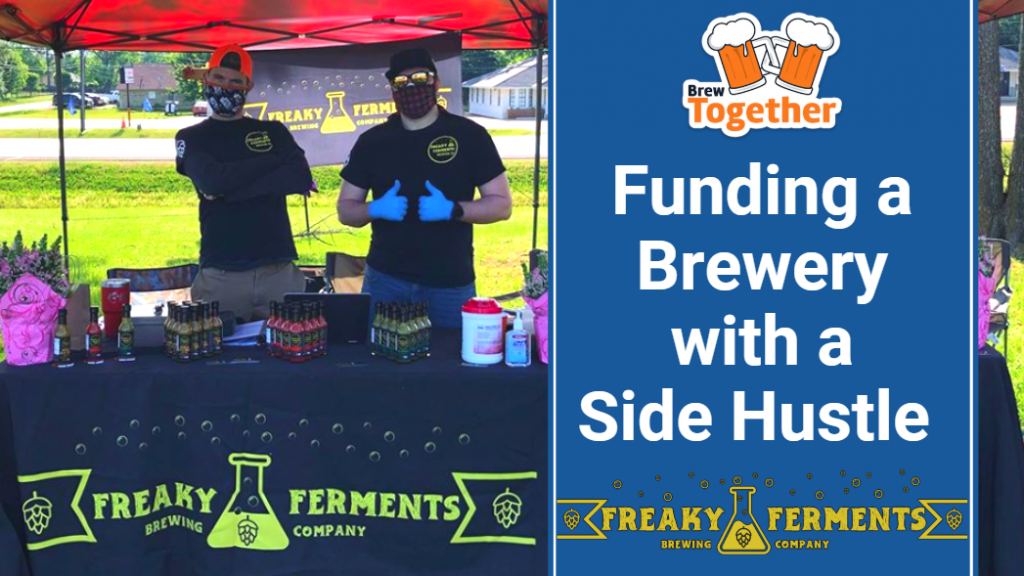

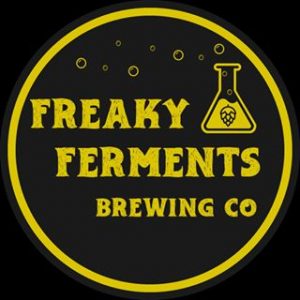

Are you interested in brewing professionally, but don’t know how to go about funding a brewery opening? It’s certainly not easy, but it might be more achievable than you think with a little bit of creativity! Today we’re excited to share the story of our friends over at Freaky Ferments and how they are funding a brewery startup by selling fermented hot sauce. We hope you find their story inspiring and their advice helpful!
Let’s start the interview!
Thanks for joining us, guys! Our hope is that other homebrewers who are interested in opening a brewery or other fermentation-based business can learn from and be inspired by your experience in running Freaky Ferments! We’re excited to be speaking with you!
Tell us a little bit about Freaky Ferments!
We are proud to offer fermented hot sauces straight from the heart of North Texas. Made in small batches, our products are given the time they need to allow the fermentation process to transform the peppers into something fresh and flavorful. Our peppers are prepped, processed, bottled, and labeled by hand here in Downtown Fort Worth. You won’t find many local products made with as much care as Freaky Ferments Fermented Hot Sauces!
We are a group of four friends, Taylor, Matt, Chad, and Chuck, raised in the Fort Worth, TX area. We all went to high school together. After graduation, we went our separate ways, but during this time independently found a passion for brewing and cooking, and aspirations to make it into a career.
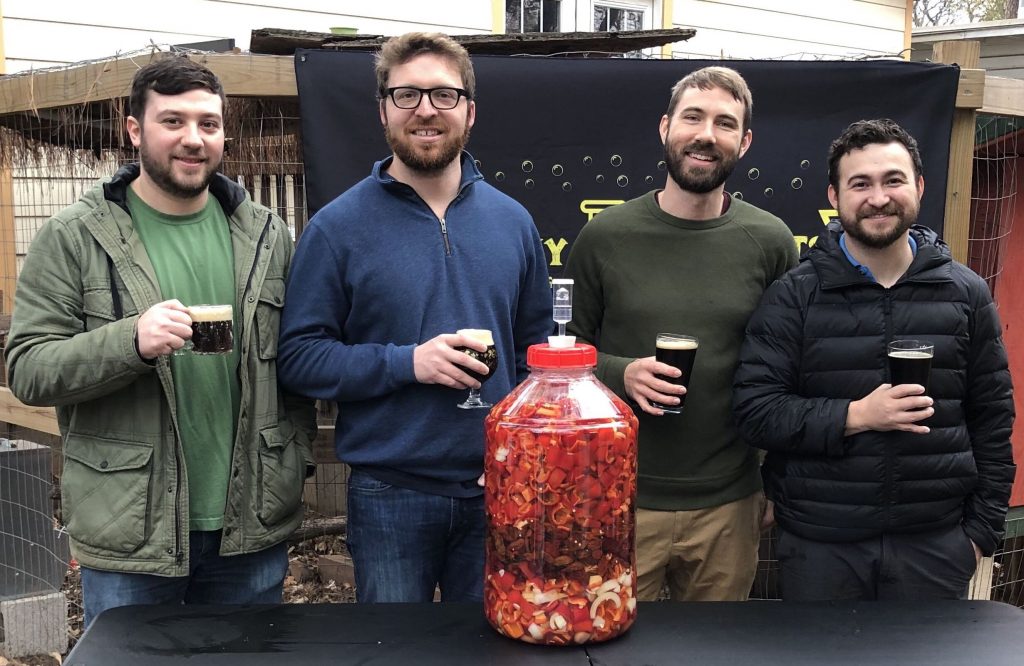

We launched our company and website in March, 2019. We dove into fermented hot sauces first, however, we’re still working towards our ultimate goal of opening a brick and mortar fermentary where we will craft beer, sauces, and anything else fermentable.
How are you using your hot sauce business for funding a brewery opening?
We started our hot sauce operation in the summer of 2019, making a few testing batches developing what would end up as our original lineup (ghost, jalapeno, verde) and launched our website and officially launched it for sale in September of 2019. At that time, we were operating under cottage food laws and selling primarily as a vendor at local markets.
Every dollar earned from our hot sauce business is put straight back into our operation. We’re proud of the steps we’ve taken, and we remain committed to becoming even better as we grow. To finance everything, we each contribute a decent sum of our income from working our day jobs into a fund that we use to buy ingredients, equipment, and finance our brewspace upgrades. We were proud to launch our own brand of fermented craft hot sauces and we cannot wait to bring you so much more!
What was the progression of building Freaky Ferments as a business?
Homebrewing with Friends
We stayed close after high school, playing video games, flag football and hanging out together. All four of us had an interest in homebrewing from the start. We all had done some extract/BIAB stove top brews in the past and had made some simple fruit wines. The first things we ever brewed were:
- Matt brewed a Mr. Beer kit when he was 20, and was the first of us to brew.
- Chuck brewed a Northern Brewer Pliny the Elder clone extract kit in a kettle on the kitchen stove.
- Matt had made pear wine, which eventually led to us making pear wine in the Brewlab.
- Taylor made a West Coast IPA from extract.
We learned how to ferment beer and wanted to ferment other things as well. Once we had a space to brew and ferment in, we did our first all-grain batches of homebrew.
Building the Brewlab
When Chad bought his house in in Arlington in 2015, it had 2 sheds in the backyard. 1 was a typical backyard storage shed, but the other was a massive, 2 story, 250 sq ft per floor workshop. It was wired for power and had both 120v and 240v electrical connections.
In the fall of 2015, the pears Matt’s grandparents’ pear trees began to ripen and, inspired by some wine we had made a few years earlier, we wanted to make more. So we teamed up for the first time with no idea what was going to come out of it, and set to turn that enormous shed into a place to make a whole lot of pear wine.
Knowing we would need temperature control during the fermentation, we added insulation to the shed and put in drywall. We then cut out a hole in the wall to fit in a wall A/C unit. We installed a utility sink that we could plug the hose into and a simple water filtering system for brewing water. With no paint on the walls and an old, yellowing craigslist wall A/C unit, we installed some basic wood cabinets and brought all our home brewing supplies in. The “Brewlab” was born.
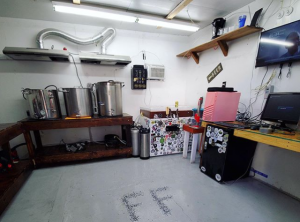

After driving all around Arlington looking for bags of sugar, we made it back to the brewlab and started cutting pears and heating water. If I remember correctly, all we really did was heat water, throw in pear pieces and sugar until we reached our OG, drained it into carboys, and let it ferment. We made 7 carboys of wine that day.
From there, the Brewlab slowly expanded and it really wasnt very long until we had what we needed to brew beer. Our original beer brewing setup was a 10 gallon pot and a homemade cooler mashtun. We had no wort chilling system and used the same pot to heat water for the mash and to boil. Our first beer was an IPA that turned out…not that great.
As time went on, our beer got better and better, and we slowly made upgrades to our equipment. We started all putting money each month into a Venmo fund to buy things for the Brewlab as a group. we acquired a counterflow chiller, a better AC unit, a heater, built a keezer and moved to kegging and got a fridge for lagering.
In the spring of 2018 we went all out and sealed up the concrete floor, put plastic shielding on the walls and painted it, built a massive sturdy wooden brew bench, and upgraded our system to a full size, 3 kettle electric system complete with pumps, a full size brew controller, dedicated filtered water lines, and a mounted chiller. It was the biggest step we had made to date. After some minor burns and a little (ok, a lot) of hot water and beer on the floor, we got used to using the system. Our beer was the best it had ever been.
At the start of 2019, we were in a position where we thought we may have the opportunity to brew our beers as contract brewers in a small bar. We formed ourselves into an LLC in case that opportunity came to fruition, so that we would be ready to move in immediately. That unfortunately did not pan out, but that may have been for the best. Being as we had formed a business already, and didn’t have nearly the money required to get a brewery or brewpub started up, we started looking for something else to do. Little did we know it was right in front of our noses.
Making Hot Sauce
For a few years going, one of our guys, Chuck, had been growing Carolina reapers and ghost peppers. Hes always had a affinity for grandeur, being the guy who brews beers with an average grain bill around 40lbs per brew (twice as much as most of our brews), and OGs approaching 1.100 on many many beers. So naturally, he used his gardening space to grow the hottest peppers he possibly could.
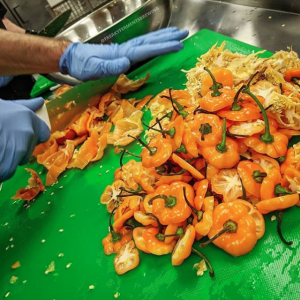

We always made fun of him a bit for it, reminding him that there would be no way he could possibly use those peppers in the amounts he was growing. He did it anyway, of course, and did find something to do with them: ferment them and turn them into a super hot paste. He brought that paste over during brews a few times, and we all tried it on things like pizza and take out. It was so insanely hot its hard to describe. Even though all 4 of us were big fans of spicy food, as little as a teaspoon of this stuff on something would have us in full sweat and hiccups.
It was strange though, for as hot as it was, it was GOOD. The combination of reapers and ghost peppers gave the paste a floral, sweet as well as savory flavor. It was hard to stop eating it. Matt used some of the paste to make some jerky with, and we ate it bag after bag. It was fantastic.
Chuck brought a few ziplock bags of ghost peppers and reapers for us to take home since he had so many of them. Matt found out from Chuck what he did to ferment them, and set out to make a paste that had that flavor but without as much of a mouth-searing heat. He took them home and used red bell peppers in the fermentation, as well as some other basic ingredients such as garlic and onion. He fermented the mixture and during the blending phase, he accidentally added too much of the brine back into the paste. What he ended up was not a paste, but more of a sauce, and it tasted really good. Taking it back to the guys, it was a hit, and we had an idea. We loved the fact that the sauce ferments (albeit in a totally different way), just like beer does. It tied the sauce and the beer together.
Brewing a Business
We went on to make some more small test batches of this sauce to hone in the proportions of the other ingredients and dial in the heat to a level we all agreed was right. It was very hot, as any sauce made with Carolina reapers and ghost peppers should be, but not painfully hot. Getting the garlic, onion, and vinegar dialed in also boosted the flavor beyond what we ever could have hoped for. Friends, family, and co workers loved it. Several even mentioned that it was good enough we could sell it (little did they know our plans) and our GHOST sauce was born. This was just the start however. We needed to decide how to package it, get a label made, and figure out how to sell it.
During the summer of 2019, we developed 2 other flavors so that we could launch with more variety. We made a sauce with jalapeno peppers, and one with Anaheim and Serranos. After some tweaking, these became our mild Jalapeno flavor and our medium-hot Verde flavor. We spent many many hours making label design after label design, debating design themes and elements, sauce names, and type of bottle to package in.
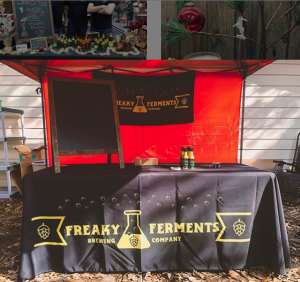

In September of 2019, Texas started its cottage food law, and we jumped at this opportunity to sell our sauces legally with low startup costs. We launched our website, announced what we were doing on our social media, and got to it. We were absolutely floored by the initial support we got in just our first few weeks.
This worked for us for a while, but we wanted to step up to selling sauces to retailers, wholesalers, and bottle it private label. This is not allowed when your operating under the cottage food law. So shortly after the start of 2020, we applied for a food manufacturing license in Texas and found a commissary kitchen in fort worth to start making our sauces in. We started in the new kitchen in February 2020. Since then, our sauces have seen a tremendous increase in quality and we’ve nearly quadrupled our production.
Is this a full time job for TeamFreaky, or is this your side hustle?
We can all agree this is a Full-time hustle! All of us work our full time jobs while growing Freaky Ferments Brewing. We use a discord channel to always in communication with each other, and we talk every day. We have meetings via discord every few weeks and have spreadsheet that outlines short term and long term goals so that we all stay on the same page. All of us have certain things we do to keep things running.
Because we all have full time jobs, we manage FF in our extra time throughout the week. Thank god we have 4 hard working people dedicated to making this venture a success! There is just no way that only one of us could do this on our own.
How did you develop an interest in starting a business in the brewing and craft beer industry?
The four of us love to go to breweries and try new beers, and we love the social aspect of beer and brewing. Our love for beer and brewing, along with our passion for making other fermented foods made pursuing this dream an obvious choice for us.
What are your favorite styles of beer to drink and brew?
- Matt: My favorites to drink are easy drinking, light IPAs, and I like to brew porters and light American style ales.
- Chad: I like to drink German and American lagers, and I really enjoy brewing lagers and doing docoction mashing in my brews.
- Taylor: I drink mostly hoppy, mid to high ABV (5% – 7%) IPAs, but my favorite beer to brew is a Belgian Quad.
- Chuck: I’ll drink anything free, cold, and open! When I brew I go big and shoot for over 10% ABV.
What advice would you share with other homebrewers who are interested in opening a beer and brewing-related business?
When you open a brewing-related business, you’re going to spend a lot more time on the business side of it than you are the brewing side. Our number one piece of advice is that you do your research and have a thorough understanding of the industry laws and regulations. You will need to gain some real business knowledge, because you’re going to deal with a lot of legal questions and taxes, especially in the brewing business. You’ll need to consult experts, but some of our greatest failures have come from relying on others and getting burned by them.
You’re also going to run into problems, probably a lot of them. We’ve had wine go sour, beer get infected, plenty of equipment issues (broken carboys, mill problems, Co2 leaks, and more. When you run into issues it can take the wind out of your sails, so focus on the successes you have had. Brewing beer that a wide variety of our friends and family enjoy, as well as placing in a local homebrewing competition, has been one of our greatest successes, and that has kept us motivated. We also get motivated by the milestones we have reached as our business has progressed, like building the Brewlab, establishing our LLC, and completing our HERMS system.
Our final piece of advice is to make sure this is really something you want to do professionally before you jump in. Work at, or at least volunteer at, a brewery for a while and get a feel for the business. It’s a lot of work!
What is a common myth about the beer and brewing industry that you want to debunk?
- MYTH: Brewing beer is hard.
- TRUTH: Brewing good beer is hard.
- MYTH: Better equipment makes better beer and easier brew days.
- TRUTH: Better equipment makes better beer but more ‘complex’ brew days.
- MYTH: Brewing is mostly spent brewing beer.
- TRUTH: Brewing is mostly spent cleaning.
- MYTH: This is a cutthroat industry.
- TRUTH: This is an awesome, collaborative community.
What are your plans for the future of Freaky Ferments?
Over the next year, we plan to continue to build momentum and expand our brand. Over the next five years, we would like to be working for FF, possibly in a commercial brick and mortar fermentary. We would like to see more wholesale business as well. Since we are now in the commercial kitchen, our capacity is very large and we’re looking to start fulfilling larger bulk orders.
How can people connect with you?
Check out our website and find us on Instagram, Facebook, and Twitter!
Thank you so much for teaching us about funding a brewery and making awesome hot sauce, guys! Best of luck to you and the rest of the Freaky Ferments family in the future!
Looking for more information about how other people have started successful breweries? Check out the books listed below!
Are you a brewery or beer industry business owner with a story to share? Send us an email at john@brewtogether.com if you would like to be featured in this article series!
Thank you for reading! If you like this article, it would mean the world to us if you would share it with your friends using the social media share buttons below.
If you’re not a member of BrewTogether, we’d love for you to join! BrewTogether is completely free, and signing up is easy! Click here to join!




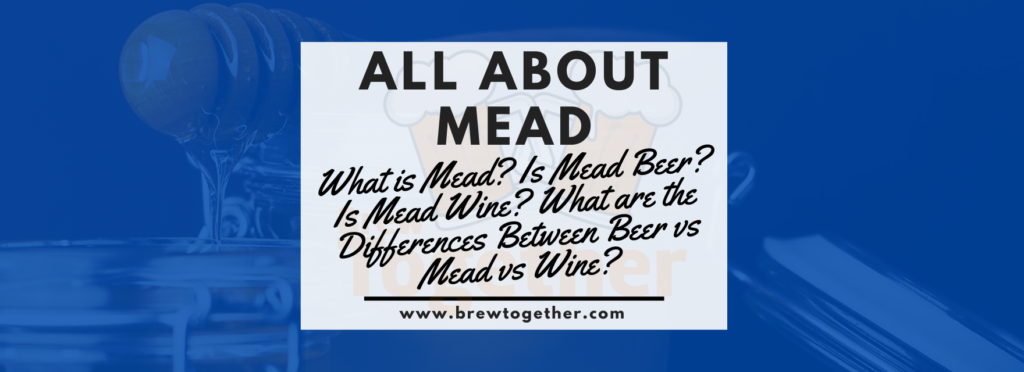
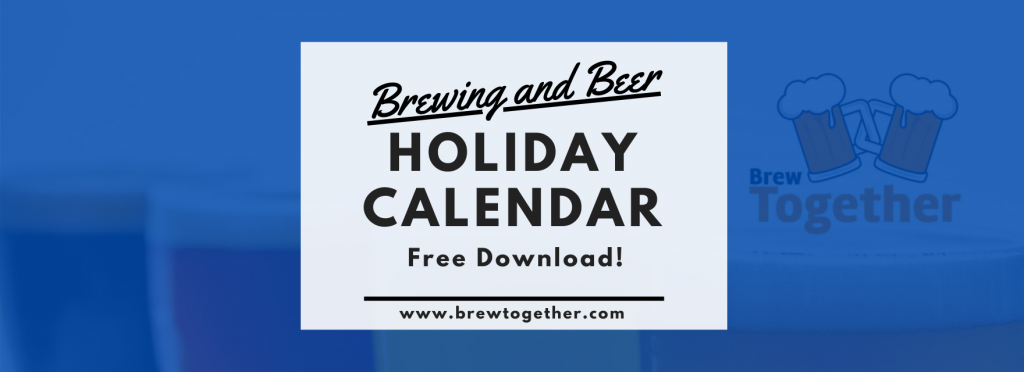
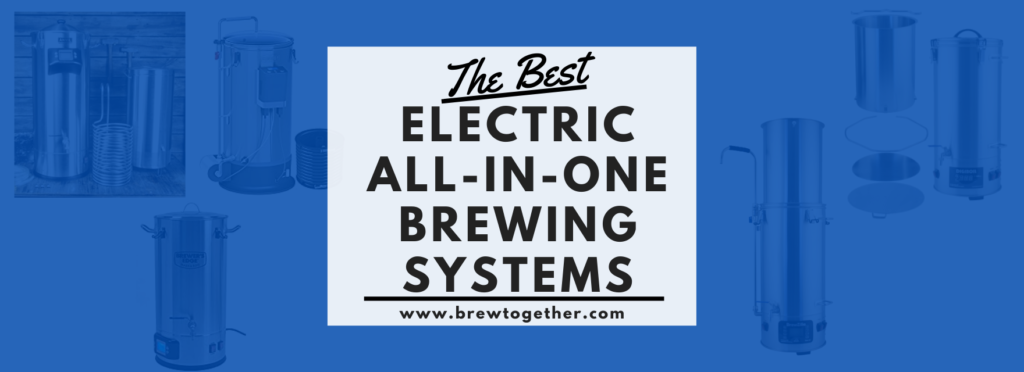
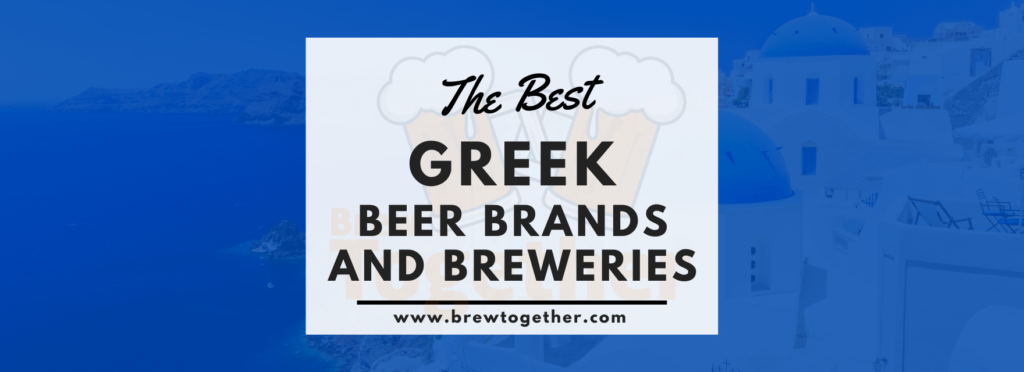
Responses